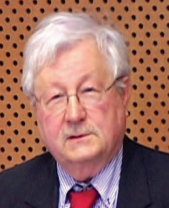Count Christopher de Breza
Biz@India
June 2017
We want to learn from the expertise of Organisation for Economic Co-operation and Development (OECD) in the domain of skilling and education; and to evolve with the important industries, both in India and Europe, says de Breza.
As Embassy of India in France, OECD and Europe India Foundation for Excellence (EIFE) prepare for the second episode of ‘Global Skill Development Meet – A Skill India Week in France’, Count Christopher de Breza, founding chairman, EIFE, shares with Biz@India how the event aims to spearhead the ambitious ‘Skill India’ mission of the Indian government.
The Global Skill Development Meet (GSDM) is in its second year now. How is it different from the three previous skill development events?
The first conference held in May 2016 in Paris was aimed at increasing awareness about the skill development scenario in India, and analysing the response that we could receive from the European decision makers. From the beginning, the interest was great; we got the support of UNESCO.
We decided to organise this conference, this time during the Paris Air Show, which is probably one of the oldest and biggest air shows. At the air show, the current situation of skilling in the sector will be assessed, in presence of minister of Skill Development and Entrepreneurship (MSDE), Rajiv Pratap Rudy, who has confirmed his presence for the event. It also includes a visit to Dassault. And then, secondly, we are also organising ‘Knowledge Enhancement Tours’ to the training and skilling centres of our industrial partners, some of the biggest multinationals in Europe, like Schneider Electric.
Could you elaborate on the objectives of the event?
The objective is to increase co-operation and possibly, in the best conditions, to build up PublicPrivate Partnerships (PPP), between Europe and India. We are looking at widening and deepening our network of companies interested in India and vice verse, by identifying Indian companies that are looking for collaboration. We want to learn from the expertise of OECD in the domain of skilling and education, and to evolve with the important industries, both in India and Europe. This event will definitely be a step ahead, where we wish to bring OECD to India, and we hope it will serve as a platform for forging concrete partnerships.
How do EIFE and its events demarcate themselves among the many skill development events being organised?
We have a unique set of partner organisations working with us. We started working together with OECD following the decision taken by its secretary general Ángel Gurría. We are also working with two directorates at OECD: Directorate of Labour, Employment and Social Affairs, and Directorate of Education and Skills. With our kind of work, we are sort of the pioneers.
There are plenty of examples of bilateral cooperation, but we are the first ones trying to build a multinational platform. While the other organisations represent either India or a European nation, we represent both sides, knowing their strengths, capacities and requirements very well. Thus we aim to build the setting for favourable international partnerships and cooperation.
What shall be subsequent course of action for EIFE after the event?
We are already thinking of organising another summit in India next year. We hope that a high delegation, especially from the MSDE and the National Skill Development Corporation (NSDC) will help to establish contact with OECD and to discuss further projects.
We hope that it will launch a platform for concrete partnerships. Our upcoming goals shall be launching a pilot project in coordination with OECD and the chosen multinational corporations or the representative organisations. EIFE would like to monitor a study with a prominent European institute and an equivalent one in India in order to base the perception of the market on a sound basis.










